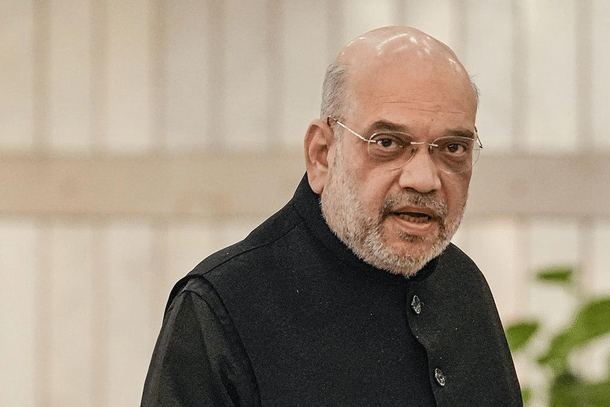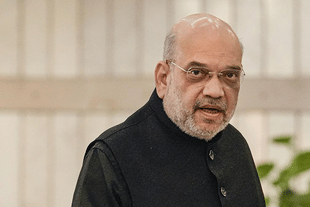Politics
Why Did BJP Choose The State Route For UCC? This Could Be The Reason
Abhishek Kumar
Feb 08, 2024, 09:45 PM | Updated Feb 10, 2024, 02:56 PM IST
Save & read from anywhere!
Bookmark stories for easy access on any device or the Swarajya app.


Democracy is a tricky turf to operate on. Even with the best of motives, there is fear that a vocal numerical minority will stall a move, leading to scuttling of the proposed reform.
That is why the method of introduction of Uniform Civil Code(UCC) draws special attention.
UCC in Uttarakhand
Uttarakhand’s Pushkar Singh Dhami government tabled and passed the UCC Bill in state Assembly on 6 and 7 February. The bill seeks to bring every citizen of the state under a single set of laws by replacing distinct personal laws of every community. Only Scheduled Tribes (STs), which constitute about 3 per cent of the state population, have been exempted from the bill.
On the issues of inheritance, marriage and divorce, it brings women on par with their male counterparts.
The introduction of the UCC is being considered as a landmark change in the approach to personal laws in the country. There is speculation that the Union government too will bring a UCC at the national level if and when it is returned to power.
Although, the road to a national UCC seems to go through states, unlike other major reforms like the CAA and Farm Laws. In fact, the state route for UCC may have been chosen precisely because of the experiences with the CAA and the Farm Laws.
Anti-CAA Protests
In 2019, the Modi government amended the Citizenship Act of 1955, paving the way for faster approval of citizenship to refugees belonging to minority communities of Pakistan, Bangladesh and Afghanistan.
However, this amendment was met with fierce protests. Many NGOs, student bodies and various minority organistions joined hands against it. The Delhi riots of 2020 had their genesis in the protests against the CAA.
At the government's end, even after four years of passing the law, the Home Ministry has not yet formulated the rules to implement it.
Protest against farm laws
In 2020, the Modi government brought another set of reforms meant to improve the agriculture sector and farmers in the country. The proposed laws brought major changes like:
-removing restrictions on where farmers could sell their produce.
-creating a legal framework for enabling contract farming.
-removing stock limits by amending the Essential Commodities Act
These changes were not acceptable to the numerically less but vocally loud section of protestors. With the help of political support, farmers sat on protests near the national capital against these laws.
The peak of the protests came when a large number of violent agitators entered Delhi on 26 January 2021 and a group went to the Red Fort and unfurled a religious flag at the venue.
Finally in December 2021, these laws were repealed.
Nationwide changes
Both sets of reforms were similar to the UCC in that they they required the government to be vigilant of ground realities, and do a thorough risk assessment before their introduction.
Looking at the way UCC is being introduced, the indications are there that BJP has changed tack after the CAA and Farm Laws experience.
After Uttarakhand, few other states are also supposed to introduce UCC in consonance with Article 44 of Indian Constitution. Uttar Pradesh, Assam and Gujarat are major contenders for becoming the second state in the country to introduce UCC.
Two targets in one shot
There are two reasons why the central leadership of the BJP could have preferred the UCC to be introduced in states before introducing it at the Centre.
Firstly, if there is opposition to the bill by parties and interest groups, it will be largely confined to the state where the law is introduced. That reduces the possibility of large-scale, pan-India mobilisation against the law.
Secondly, with the proper implementation, a feedback channel to both the state governments and the Centre will open. Responses and reactions of people of the state where the UCC is in action will be taken into consideration, resulting in a more rigorous draft of the Union government.
Abhishek is Staff Writer at Swarajya.




